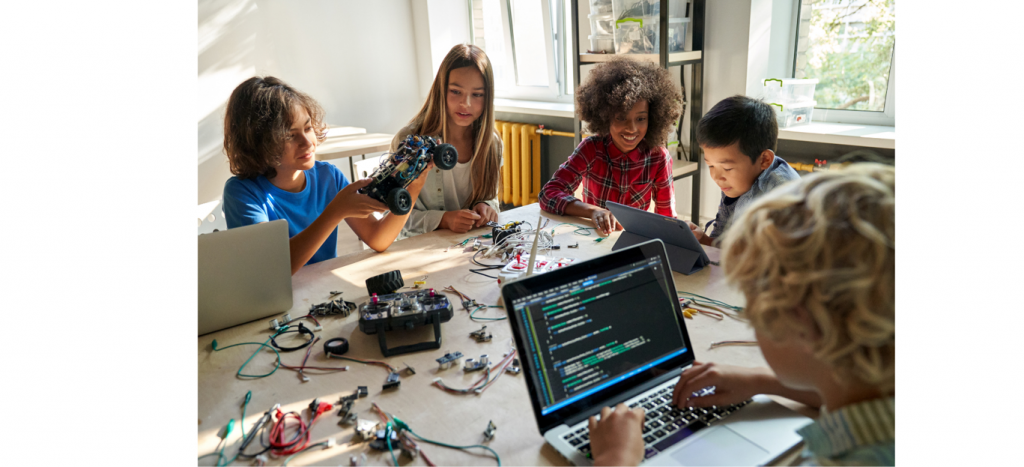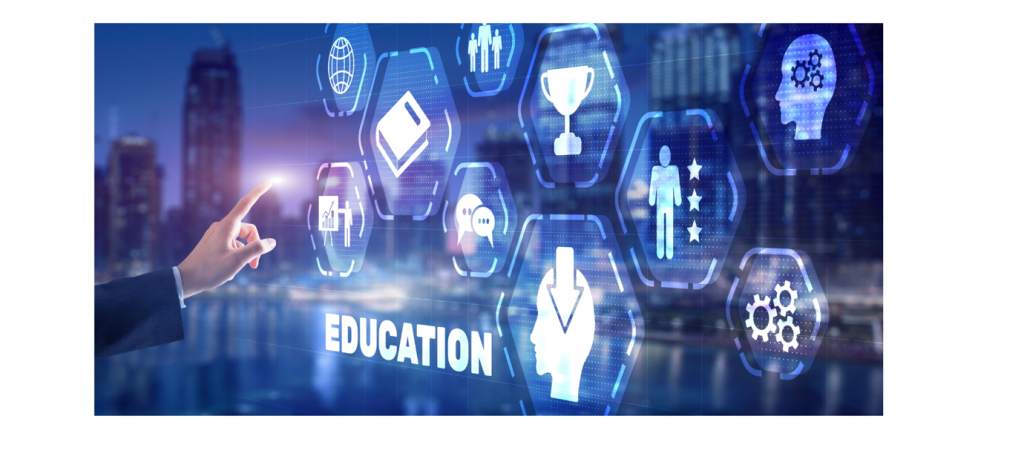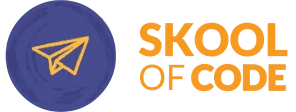In today’s rapidly evolving digital landscape, where technology shapes every facet of our lives, a new form of literacy is emerging: coding. The rise of coding signifies more than just a technical skill; it represents a fundamental shift in how we interact with and understand the world around us.
As technology continues to advance at an unprecedented pace, proficiency in coding is becoming increasingly essential, akin to traditional literacy skills. From powering smartphones to driving artificial intelligence, coding permeates every aspect of modern society, shaping our future and redefining what it means to be literate in the digital era.
The Evolution of Coding
Coding, also known as programming, is the process of creating instructions for computers to execute. It involves writing code in programming languages such as Python, Java, C++, and others to develop software, applications, websites, and more. While the concept of coding dates back to the early days of computing, it has undergone significant evolution over the years.
In the early days of computing, coding was primarily the domain of computer scientists and engineers who worked with mainframes and punch cards to write programs. These programs were often complex and required a deep understanding of computer architecture and assembly languages.
However, with the advent of personal computers in the 1970s and 1980s, coding began to enter the mainstream. Hobbyist programmers and enthusiasts experimented with early programming languages like BASIC and Pascal to create simple games, applications, and utilities. This era marked the democratization of coding, as individuals outside of the traditional computer science community began to explore programming as a hobby or a means of personal expression.

The proliferation of the internet in the 1990s further accelerated the popularity of coding. The emergence of the World Wide Web created new opportunities for web development, e-commerce, and online communication, driving demand for skilled web developers and programmers proficient in languages like HTML, CSS, and JavaScript.
Coding as a Gateway to Data Literacy
Understanding coding’s significance extends beyond merely writing lines of code; it’s about unlocking the power of data. In today’s data-centric society, the ability to interpret and analyze vast datasets is paramount across diverse sectors. Enter data science, a dynamic field that melds coding, statistics, and specialized knowledge to glean insights from data. Python and R, among other programming languages, are the tools of the trade for data scientists, who sift through, clean, analyze, and present data, aiding organizations in informed decision-making and problem-solving.

Moreover, coding proficiency is indispensable in the realms of machine learning and artificial intelligence (AI), which are reshaping industries like healthcare, finance, transportation, and entertainment. Machine learning algorithms, reliant on coding, train models on extensive datasets to forecast outcomes or make decisions based on new information.
Whether it’s recommendation systems, image recognition, natural language processing, or autonomous vehicles, coding underpins the innovative AI technologies shaping our future. For children eager to embark on their coding journey, block-based coding platforms like Scratch, HatchXR, and MIT App Inventor offer accessible entry points. These platforms use visual blocks to introduce coding concepts in a playful and intuitive manner, providing a stepping stone for young learners to explore the world of programming before diving into text-based languages.
Coding for Communication in the Digital Age
In addition to its role in data analysis, coding serves as a powerful medium for communication in the digital age. Just as language allows us to convey thoughts and ideas to others, coding enables us to express concepts and create digital experiences.
Web development, in particular, relies heavily on coding to design and build websites, web applications, and online platforms. Front-end developers use HTML, CSS, and JavaScript to create the visual layout, design, and interactivity of web pages, while back-end developers use server-side languages like Python, Ruby, and PHP to manage data, process requests, and perform server-side operations.
Moreover, coding is essential for creating multimedia content, interactive graphics, and digital art. Creative coders and artists use programming languages like Processing, p5.js, and Unity to generate dynamic visuals, animations, and interactive installations. From generative art and digital storytelling to virtual reality experiences and interactive exhibits, coding empowers individuals to create immersive digital experiences that engage and inspire audiences.
Coding as a Catalyst for Critical Thinking and Creativity
Imagine your child setting sail on a journey where every line of code they write becomes a step towards unlocking their full potential. Beyond its practical uses, coding serves as a gateway to critical thinking, problem-solving, and igniting creativity.

As they delve into the world of coding, they’ll cultivate a logical mindset, learning to dissect complex problems into manageable chunks and craft elegant solutions. This process not only equips them with valuable technical skills but also instils a systematic approach to tackling challenges in all facets of life.
But it doesn’t stop there. Coding is a canvas for creativity, allowing your child to breathe life into their imagination through software development, game design, and innovative coding projects. From crafting a mobile app to shaping a virtual world in a video game, coding empowers them to turn their wildest ideas into reality.
Moreover, coding is a social endeavor, fostering collaboration and teamwork. By joining forces with fellow developers in open-source communities, they’ll engage in a vibrant exchange of ideas, contribute to shared projects, and harness the collective wisdom of a global network of programmers. Together, they’ll drive innovation forward and leave their mark on the ever-evolving landscape of technology.
In essence, coding is more than just lines of text; it’s a journey of self-discovery, creativity, and collaboration that will empower your child to thrive in an increasingly digital world.
The Expansive Reach of Coding Beyond Traditional Fields
Coding’s journey into non-traditional realms—art, music, and social sciences—showcases its transformative potential beyond its core technical origins. In art, it powers digital and generative artworks, enabling artists to craft interactive, evolving pieces that engage audiences in new, dynamic ways. Programming languages like Processing allow for the creation of visuals that respond to various inputs, blurring the lines between viewer and artwork.

In music, coding revolutionizes how sounds are composed, performed, and experienced. Tools like SuperCollider facilitate the invention of unique sounds and algorithmic compositions, democratizing music production and enabling a wider range of creative expression.
Social sciences benefit from coding through enhanced data analysis and interpretation. Python and R are pivotal in analyzing complex data sets, offering insights into societal trends, behaviors, and patterns. This digital toolkit allows social scientists to uncover hidden correlations and forecast social phenomena with unprecedented accuracy.
Online Coding Classes and 21st Century Skills
In the digital age, online coding classes have become increasingly popular as a means of acquiring coding skills. These classes offer flexibility and accessibility, allowing individuals to learn at their own pace and from anywhere in the world. Platforms like Codecademy, Coursera, and Udemy offer a wide range of coding courses covering various programming languages, technologies, and skill levels.

For children, learning to code is more than just acquiring a practical skill; it’s a catalyst for building essential 21st-century competencies. Beyond programming proficiency, coding fosters creativity, critical thinking, problem-solving, and collaboration – skills that are indispensable in an ever-changing landscape. By engaging in online coding classes tailored for kids, they gain not only technical know-how but also the confidence to navigate the digital realm with proficiency and creativity. These classes provide a structured yet dynamic environment where children can explore, experiment, and ultimately, thrive in the digital age.
SkoolOfCode: Empowering Kids with Coding Education
SkoolOfCode is an online coding school that specializes in teaching coding to kids and teenagers. With a mission to empower the next generation of innovators and problem-solvers, SkoolofCode offers interactive and engaging coding classes designed specifically for young learners.
At SkoolofCode, kids learn coding through fun and hands-on projects that ignite their creativity and curiosity. From building their own video games and animations to creating interactive stories and websites, students develop valuable coding skills while unleashing their imaginations.

SkoolOfCode’s curriculum is carefully designed to introduce kids to programming concepts in a way that is accessible and engaging. Through step-by-step instructions, visual aids, and interactive exercises, students learn to code in languages like Scratch, Python, and JavaScript while developing problem-solving skills and computational thinking.
Moreover, SkoolOfCode emphasizes the importance of collaboration and teamwork, providing opportunities for students to work together on group projects and share their creations with their peers. By fostering a supportive and inclusive learning environment, SkoolOfCode aims to inspire young learners to pursue their passions and embark on a lifelong journey of learning and discovery through coding.
Revolutionizing Learning: AI’s Impact on Coding Education
The realm of coding and education technology is in constant flux, with innovations driven by Artificial Intelligence (AI) leading the charge.

These developments promise to revolutionize learning experiences and outcomes. Let’s explore some key trends in this dynamic arena.
- AI-Powered Adaptive Learning Platforms: Among the most ground-breaking advancements are adaptive learning platforms utilizing AI to personalize learning. These platforms analyse students’ learning behaviours and adapt content, pacing, and instructional style to individual needs. By tailoring learning paths, they enhance engagement and efficiency, offering more effective learning experiences.
- Sophisticated AI Tutors and Assistants: AI-driven tutors and assistants are increasingly adept at providing personalized support across various subjects. They can offer real-time explanations, answer questions, and provide feedback, enriching learning interactions. Beyond subject-specific assistance, they cultivate critical thinking, problem-solving, and time management skills.
- Engaging Game-Based Coding Education: Game-based platforms teaching coding skills are gaining traction, made more effective with AI adaptation. By adjusting challenges to skill levels, they make coding education enjoyable and interactive. Platforms like SkoolOfCode, Code Combat and CodinGame introduce programming concepts through gameplay, captivating learners of all ages.
- Immersive Learning with VR and AR: Virtual and Augmented Reality technologies offer immersive learning experiences in coding and beyond. Students can engage in virtual experiments and practice coding in simulated environments. HatchXR,AltspaceVR and Tinkercad utilize VR and AR to teach coding and 3D design, providing hands-on experiences in controlled settings.
- AI-Enhanced Curriculum Development: AI aids educators in developing dynamic, engaging, and inclusive curricula. By analyzing student data, it identifies curriculum gaps and suggests enhancements, ensuring responsiveness to evolving learning needs. Ethical AI Education: Education programs now include discussions on ethical AI use, data privacy, and societal impacts, preparing students to navigate AI responsibly.
- Collaborative Learning and Open Source Projects: The collaborative ethos in coding and education tech thrives with open source projects and platforms. Tools like GitHub and GitLab facilitate coding collaborations, while online communities like Stack Overflow and freeCodeCamp provide support and resources. This open approach accelerates innovation and fosters inclusivity in coding education.
Conclusion
The emergence of coding as a modern form of literacy in our digital age highlights its profound impact on society. From its origins as a specialized skill to its current status as a fundamental component of digital literacy, coding permeates every facet of contemporary life. In today’s complex landscape, proficiency in coding is not just advantageous but essential for success.
Online coding classes offer accessible pathways for individuals, particularly children, to cultivate coding skills and unleash their potential as creators and innovators. These classes not only impart technical expertise but also foster critical thinking, problem-solving, and collaboration abilities vital for thriving in our interconnected world.
Looking ahead, coding will continue to shape our society, driving innovation, empowering individuals, and reshaping the concept of literacy in the digital age. By embracing coding education and nurturing a culture of lifelong learning, we can equip ourselves and future generations with the tools to navigate and influence the digital landscape effectively.
The latest developments in coding and educational technology, including advancements in AI, are revolutionizing learning and teaching methods. These innovations promise to personalize education, enhance engagement, and improve effectiveness, preparing students for a future where technology and coding skills are indispensable. As we embrace these changes, it’s crucial to uphold principles of inclusivity, ethics, and holistic learner development in education.
With these principles guiding us, the future of coding and educational technology appears promising, offering boundless opportunities for learners worldwide.
Ready to start your coding journey?
Join SkoolofCode today for a trial and experience the joy of learning to code in a dynamic and engaging environment tailored for young learners. With skilled instructors and interactive projects, SkoolOfCode is dedicated to empowering the next generation of innovators and problem-solvers through coding education.
Ms.Manpreet Virk, an educator at SkoolOfCode with a degree in M.Phil and Master in Computer Science. She is passionate about learning and teaching young minds.

